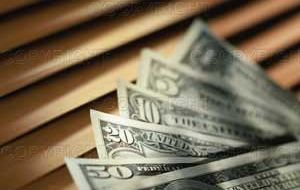MercoPress. South Atlantic News Agency
Mixed signals from the US economy: decline softening
 Consumers’ confidence in the US rose to its highest since September
Consumers’ confidence in the US rose to its highest since September The US economy shrank at an annual pace of 5.7% in the first quarter, a less severe drop than initially reported but still the second-biggest quarterly decline in 27 years, according to the US Commerce Department.
Economists expect a drop in GDP this quarter as well, although not as sharp as in the first three months of the year. Last month, the government initially reported that GDP -- the broadest measure of the nation's economic activity -- fell at an annual rate of 6.1%.
The first quarter of 2009 marked the third quarter in a row that the economy has contracted. It was the second worst drop in the measure since the early 1980s -- behind only the fourth quarter of 2008, when GDP plunged at an annual pace of 6.3%.
Much of the revision in first-quarter GDP was attributed to a lower reading in business inventories, as sales of domestic products were unchanged at a 3.4% annual rate of decline.
In the first quarter, spending by individuals was revised lower to a rate of 1.5% growth, down from the initially reported 2.2% rate. Residential investment plunged by 38.7% in the quarter. The recession has cut into demand for goods and services. Unemployment, which reached a 25-year high of 8.9% in April, has caused anxious consumers to cut back.
Other economic reports Friday showed confidence among US consumers rose this month to the highest level since September, while business activity shrank at a faster pace than forecast as the auto slump rippled through the economy.
The Reuters/University of Michigan final index of consumer sentiment increased to 68.7, higher than anticipated, from 65.1 in April. The Institute for Supply Management-Chicago Inc. said its business barometer decreased to 34.9 from 40.1 in April; readings below 50 signal a contraction.
A gauge of current conditions, which reflects US perceptions of their financial situation and whether it is a good time to buy big-ticket items such as cars, slipped to 67.7 from 68.3.
The index of consumer expectations for six months from now, which more closely projects the direction of consumer spending rose to 69.4 in May from 63.1 the prior month.
Other regional figures earlier this month were more upbeat. The Federal Reserve Bank of New York factory index rose to minus 4.6, the highest level since August, and the Philadelphia Fed gauge climbed to an eight-month high. The Richmond Fed’s measure showed the first expansion in more than a year.
US consumers’ spirits are being buoyed by the improvement in stock markets and also because gasoline costs are down nearly 50% from July highs and mortgage rates are near historic lows, trimming borrowing costs for homeowners.




Top Comments
Disclaimer & comment rules-

Read all commentsPut it all into perspective. Take a look at the US economy compared to various countries as GPD per state.
May 31st, 2009 - 02:12 pm 0http://strangemaps.wordpress.com/2007/06/10/131-us-states-renamed-for-countries-with-similar-gdps/
Commenting for this story is now closed.
If you have a Facebook account, become a fan and comment on our Facebook Page!